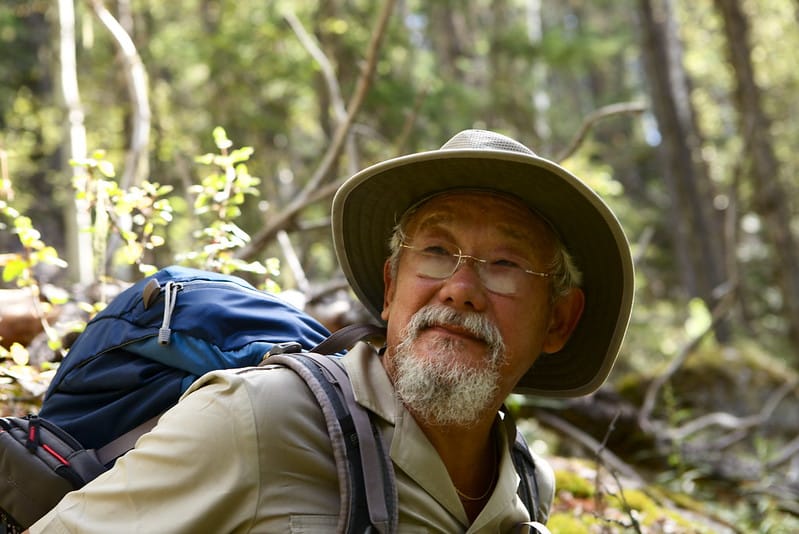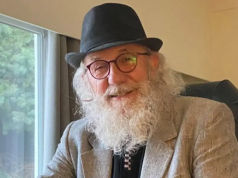Asian Heritage Month reminds us that diversity is strength
By David Suzuki with contributions from Senior Editor and Writer Ian Hanington
There’s little more that I could ask for in life than to inspire others to love nature. But I was particularly moved by a recent Globe & Mail article by UBC ecology professor Michelle Tseng, who also volunteers with the David Suzuki Foundation’s pollinator program.
“I didn’t know it at the time, but growing up on a farm in the middle of nowhere, with the odd but regular TV-sighting of the Asian-looking guy talking about nature, seeded my fascination with the natural world, and subconsciously guided me to where I am today,” she wrote, adding that I “made it okay for someone who looked like me to be outdoorsy and to spend my days (and nights) trying to unravel the mysteries of nature.”
My Asian heritage was also partly responsible for my love of nature — but in a less positive way. During the Second World War, the government sent my family to an internment camp in the B.C. Interior, even though we were all born in Canada! I didn’t speak Japanese so it was difficult to make friends. Instead, encouraged by my dad, who taught me about camping and fishing, I spent my days exploring nature.
May is Asian Heritage Month, and this year’s theme is “Stories of Determination.” It has taken a lot of determination for Asian people to overcome adversity in Canada.
May is Asian Heritage Month, and this year’s theme is “Stories of Determination.” It has taken a lot of determination for Asian people to overcome adversity in Canada.
Chinese labourers faced poor treatment and death while building the country’s railways. The federal government imposed a head tax from 1885 to 1923 to discourage them from coming to Canada, and later enacted an outright ban on immigration. People of Japanese heritage, like my family, had all their property seized and were forced into internment camps during the Second World War.
In 1914, the Komagata Maru, a ship carrying immigrants from India who were British subjects, was not permitted to dock. After two months of harsh conditions, the ship was turned back to India, where British authorities killed 19 of the passengers.
Asian people, whether born in Canada or naturalized as citizens, were not allowed to vote in Canada until 1948.
There’s more, but you get the picture. Even though Indigenous people had been living here for millennia, Canada, like many places, was for white colonizers and settlers of European descent.
The attempts to quash diversity has been one of the biggest failings of humankind. Diversity is strength, whether it’s in a forest, on a farm or among people. A tree plantation with a single species is subject to disease and other threats. A diverse forest is resilient — if a disease or pest attacks one species, others will thrive.
Denying diversity among people has limited knowledge and ideas. The dominant colonial culture that invaded and colonized many parts of the world was based on notions of superiority. Not being connected to place, colonizers regarded the natural world — and non-white people — as something to exploit.
The attempts to quash diversity has been one of the biggest failings of humankind. Diversity is strength, whether it’s in a forest, on a farm or among people.
Indigenous Peoples worldwide knew from experience of being in the same place over time that we are part of nature and that what we do to it, we do to ourselves. If we take too much, systems collapse and there is nothing left for the future.
We’re now facing severe environmental crises that threaten our health, well-being and survival — largely because we’ve given precedence to one way of thinking, a way that failed to account for the importance of protecting the lands, waters, air and biodiversity that make life possible.
So much of the western world view has been through a lens of reductionist science that examines things in isolated parts and fails to account for the whole. Now, more than ever, we need diverse perspectives to better understand how to live in harmony with our surroundings and with each other.
Asian Heritage Month may be a way to celebrate the contributions of the diverse range of people with roots in that large part of the world we call Asia, but it’s also a reminder that we need to embrace diversity and overcome the systemic problems that white privilege and racism have wrought.
Inspiring people who look similar to me to love nature is rewarding, but my greater goal has always been to inspire people from all backgrounds and walks of life to embrace nature and diversity. That’s the story of my determination.







